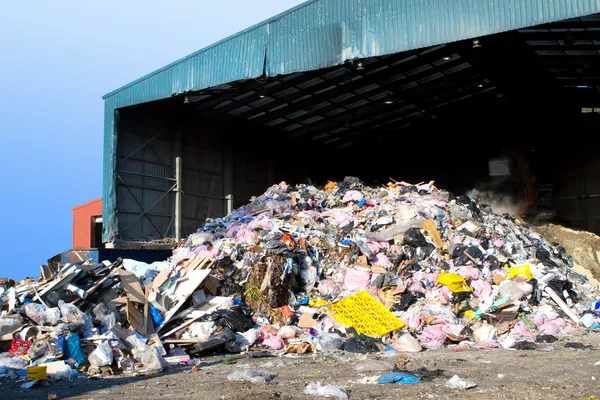One of man’s misbehavior or contribution toward ecological hazards is improper waste disposal. People practice improper waste disposal due to ignorance or their lackadaisical attitude towards maintaining a healthy environment.
A 2021 study that discussed the effects of improper waste disposal in Ota, Ogun State, shows numerous havoc this practice causes to the human body and the ecosystem at large. Therefore, this act should be discouraged.
Waste disposal can be referred to as any method by which unwanted substances or materials can be disposed of.
Improper waste disposal is a method of disposal that can have negative effects on the environment and human health.
The inappropriate method of waste disposal is one of the main agents that causes pollution in the ecosystem.
Dumping of wastes into water bodies (e.g., dams, rivers, streams, seas) and on the land can result in water pollution, air pollution, and land pollution.
A study showed that improper waste disposal increases the potential for COVID-19 to spread in developing countries, which means that improper waste management can lead to the spread of diseases.
7 Health Effects Of Improper Waste Disposal
Below are some of the health effects of improper waste disposal.
1. Causes pollution
One of the obvious health effects of improper waste disposal is that it causes pollution.
Land pollution: When waste is not properly disposed of, it ends up in the soil. The land in all surrounding areas absorbs waste and becomes dangerous for people and animals.
Water pollution: Waste can also make water unsafe for human consumption and any water bodies toxic to those swimming in the water.
Air pollution: Improper waste disposal contributes to excess gases that enter the atmosphere and cause this air pollution. The breakdown of the waste can release gases such as methane, which is a major issue in the global climate.
2. Can spread diseases
Poorly disposed waste can serve as a huge breeding ground for major diseases.
All of horrible diseases can thrive in places where waste is not properly processed. These diseases can affect people, animals, and even plants.
3. Can cause cancer
A lot of studies and research shows that cancer is associated with improper waste disposal.
Cancer is a condition whereby some of the cells in the body begin to grow uncontrollably and spread to other parts of the body. This can occur in any part of the body.
Many geographical studies show that the risk of having gastrointestinal, stomach, rectal, and colon cancer is very high in people living close to landfill waste.
4. Can result in respiratory diseases
Improper waste disposal can cause air pollution, which can result in respiratory diseases.
Studies show that people living close to dumping sites inhale polluted air, and this causes them to have a high risk of developing respiratory diseases such as asthma.
The toxic substances in the air polluted by waste include carbon dioxide, nitrous oxide, and methane, which can all cause respiratory diseases.
5. Can cause birth defects
Research shows that the risk of birth defects is 1 percent higher in those living close to landfills, and the rate of birth defects is 7 percent higher than the usual rate of birth defects.
Birth defects include spina bifida (a condition whereby the baby’s spinal cord is underdeveloped).
Gastroschisis (a condition whereby there is an opening in the abdominal wall close to the belly button).
Hypospadias (a condition in which the opening of the baby’s male sex organ is underside instead of the tip); and chromosomal congenital (this cause abnormality in the makeup of the DNA).
6. May cause reproductive impairment
Studies have proved that improper waste disposal is associated with reproduction impairment.
It is believed that there is a high risk of hormonal imbalance in people who live closer to landfills, and this can cause reproductive impairment, but more research is ongoing.
7. Can affect mental health
Improper waste disposal can take a serious toll on mental health. When waste is not managed properly, it often results in bad smells, unattractive surroundings, and an increase in pests.
These conditions can make living in such areas stressful and unpleasant. People may feel anxious or worried about the potential health risks, such as diseases or contamination.
This ongoing stress can lead to mental health problems like anxiety and depression.
Simply put, living in a clean environment is crucial not just for physical health, but for peace of mind and overall well-being.
Conclusion
Improper waste disposal, which has become a norm in the society, has a lot of health effects that people are not aware of; therefore, this practice should be discouraged. Aside from the health effects, it has effects on the ecosystem at large.
YOU SHOULD ALSO READ:
- 7 Worrying Health Effects of Late-night Sleeping
- Is Red Meat Good For The Body?
- 5 Health Effects Of Air Conditioner
- 5 Negative Health Effects of Sugary Drinks
- What Are The Health Effects Of Bed Bug Bites?
- 4 Must-Know Health Effects of Saccharin
- 3 Health Effects Of Poor Sanitation
- 5 Health Effects of Carbonated Drinks on the Body
- 5 Must-Know Health Effects of Junk Food
Collins Nwokolo is a human physiologist, writer and health enthusiast. He loves writing helpful articles on health and fitness, which he enjoys sharing with everyone.







